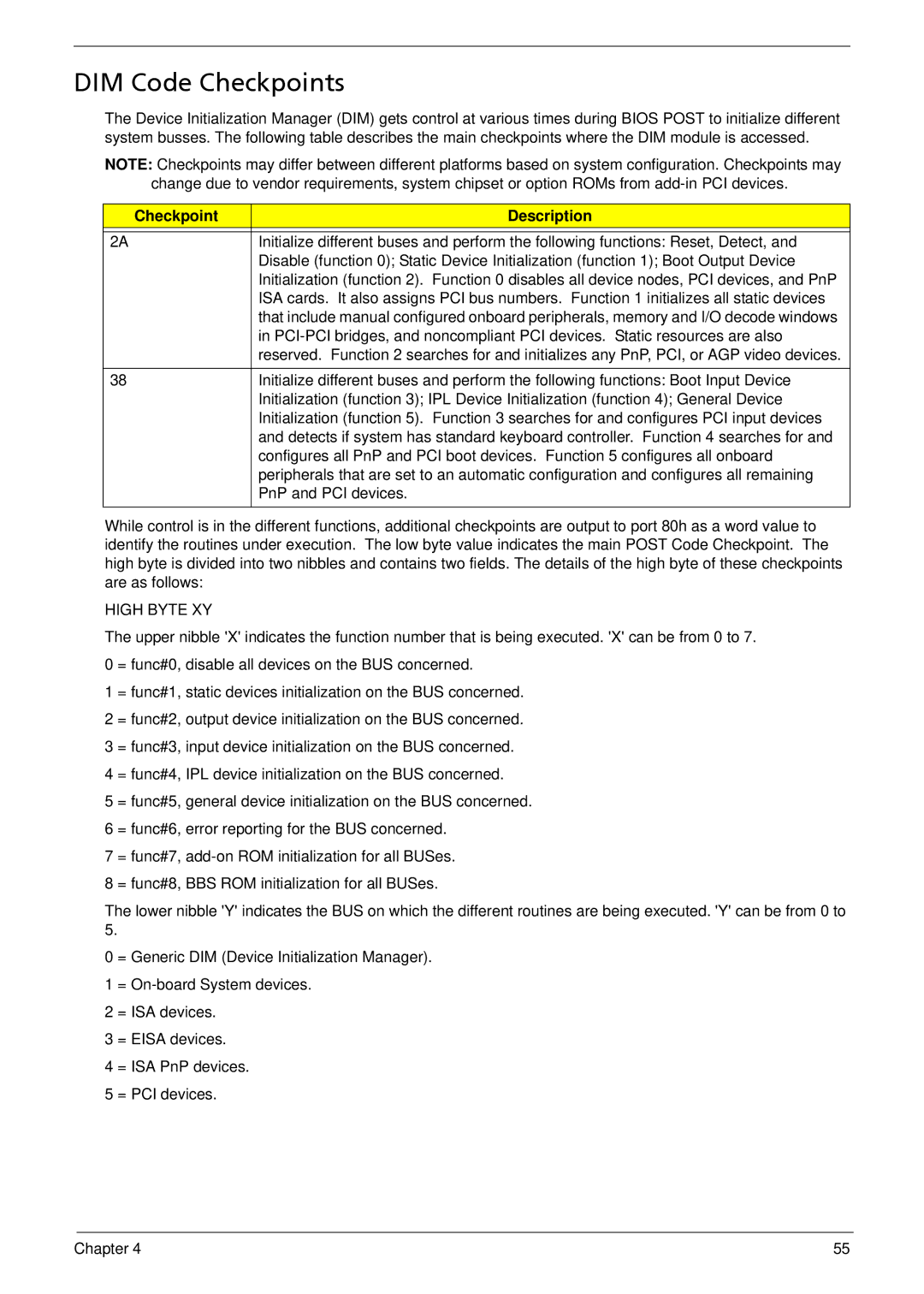
DIM Code Checkpoints
The Device Initialization Manager (DIM) gets control at various times during BIOS POST to initialize different system busses. The following table describes the main checkpoints where the DIM module is accessed.
NOTE: Checkpoints may differ between different platforms based on system configuration. Checkpoints may change due to vendor requirements, system chipset or option ROMs from
Checkpoint | Description |
|
|
2A | Initialize different buses and perform the following functions: Reset, Detect, and |
| Disable (function 0); Static Device Initialization (function 1); Boot Output Device |
| Initialization (function 2). Function 0 disables all device nodes, PCI devices, and PnP |
| ISA cards. It also assigns PCI bus numbers. Function 1 initializes all static devices |
| that include manual configured onboard peripherals, memory and I/O decode windows |
| in |
| reserved. Function 2 searches for and initializes any PnP, PCI, or AGP video devices. |
|
|
38 | Initialize different buses and perform the following functions: Boot Input Device |
| Initialization (function 3); IPL Device Initialization (function 4); General Device |
| Initialization (function 5). Function 3 searches for and configures PCI input devices |
| and detects if system has standard keyboard controller. Function 4 searches for and |
| configures all PnP and PCI boot devices. Function 5 configures all onboard |
| peripherals that are set to an automatic configuration and configures all remaining |
| PnP and PCI devices. |
|
|
While control is in the different functions, additional checkpoints are output to port 80h as a word value to identify the routines under execution. The low byte value indicates the main POST Code Checkpoint. The high byte is divided into two nibbles and contains two fields. The details of the high byte of these checkpoints are as follows:
HIGH BYTE XY
The upper nibble 'X' indicates the function number that is being executed. 'X' can be from 0 to 7.
0 = func#0, disable all devices on the BUS concerned.
1 = func#1, static devices initialization on the BUS concerned.
2 = func#2, output device initialization on the BUS concerned.
3 = func#3, input device initialization on the BUS concerned.
4 = func#4, IPL device initialization on the BUS concerned.
5 = func#5, general device initialization on the BUS concerned.
6 = func#6, error reporting for the BUS concerned.
7 = func#7,
8 = func#8, BBS ROM initialization for all BUSes.
The lower nibble 'Y' indicates the BUS on which the different routines are being executed. 'Y' can be from 0 to 5.
0 = Generic DIM (Device Initialization Manager).
1=
2= ISA devices.
3= EISA devices.
4= ISA PnP devices.
5= PCI devices.
Chapter 4 | 55 |
